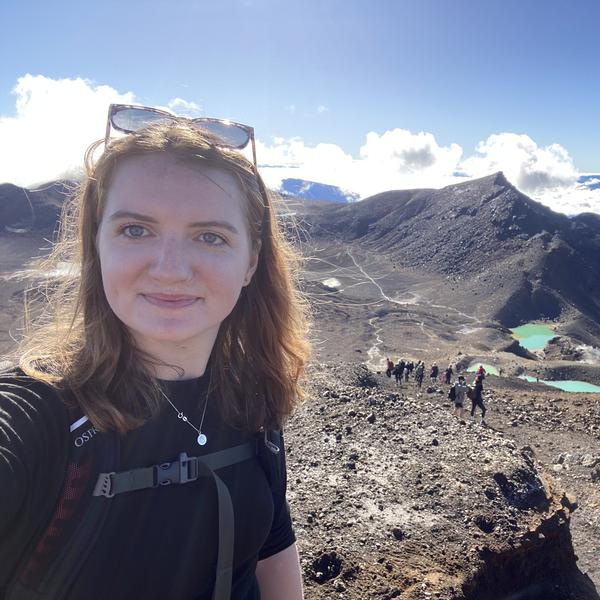Rebecca England
School of Geography and Planning
PhD Candidate


Full contact details
School of Geography and Planning
Geography and Planning Building
Winter Street
Sheffield
S3 7ND
- Profile
-
I originally joined the Department of Geography in 2015 when I began studying for my BSc in Geography. During this time, I undertook a six-week placement as a research associate on a fieldtrip to Masaya volcano. On this trip, I accompanied Dr Tom Pering and Dr Thomas Wilkes in the testing of low-cost UV cameras developed at the University of Sheffield, which sparked my interest in this topic.
I then completed a MSc in Volcanology at the University of Bristol in 2020, before returning to the University of Sheffield to begin my PhD in 2023.
Spectroscopic measurements of volcanic gases in volcanic environments
Investigating the concentrations of persistently released gases emitted by active volcanoes can provide vital information about subsurface processes, potentially providing crucial information for hazard forecasting. The measurement of individual species of gas such as carbon dioxide (CO2), sulphur dioxide (SO2), hydrogen sulphide (H2S), and water vapour (H2O) can give vital information about the eruptible state of magma stored at depth. With many active volcanoes passively releasing large amounts of gas between eruptions, recent research has stressed the importance of establishing a baseline of emission to monitor how the gas fluctuates over time, as deviations can indicate major changes in the volcanic system. The Multi-GAS instrument is the current standard for measuring the composition of volcanic gases and recent advances in their development have seen more widespread usage of them within research. However, they are prohibitively expensive, especially to less developed countries who are the most at risk, with a Multi-GAS instrument costing roughly £6k and a permanent installation roughly £20k.
Therefore, my project aims to develop a new low-cost Multi-GAS instrument to measure volcanic gas concentrations based solely upon spectroscopic approaches, simultaneously allowing for high-accuracy spatially distributed measurements at volcanoes. Multi-GAS instruments currently utilise non-dispersive (NDIR) spectroscopy to measure CO2, and electrochemical sensors for the other gases. The NDIR spectroscopy method allows for precise measurements with a high temporal resolution, albeit at a relatively high cost (£1k - £6k). Whilst electrochemical sensors have a much lower cost (£100), they have an extended response time to fluctuations in gas concentrations, and due to their exposure to harsh volcanic conditions, they require frequent replacement and regular calibration. Therefore, further developments into spectroscopic methods within Multi-GAS instruments would be beneficial. To ensure the instrument is low-cost, it will use a Raspberry Pi computer board and Raspberry Pi v1 cameras, which were originally created for the smartphone market, but have now found applications in remote sensing of volcanoes, providing a cost-effective solution for measuring gas fluxes. The instrument will undergo numerous tests in the laboratory before being tested in the field alongside a currently available Multi-GAS instrument to compare accuracy.
Supervisors: Dr Tom Pering, Dr Thomas Wilkes, Dr Rob Bryant
- Qualifications
-
2019 - 2020: MSc Volcanology, University of Bristol
2015 - 2018: BSc Geography, University of Sheffield
